Over 30% of misdiagnoses result in serious injury or death, according to a study, and the reason for some of these are patients’ wrongdoing. So when going to the doctor, it’s important to remember that the quality of the examination depends not only on the professional but on you as well.
ViralSection has put together a list of tips that can help you avoid diagnostic inaccuracies and stay healthy.
1. Don’t get a mani-pedi before visiting the dermatologist.
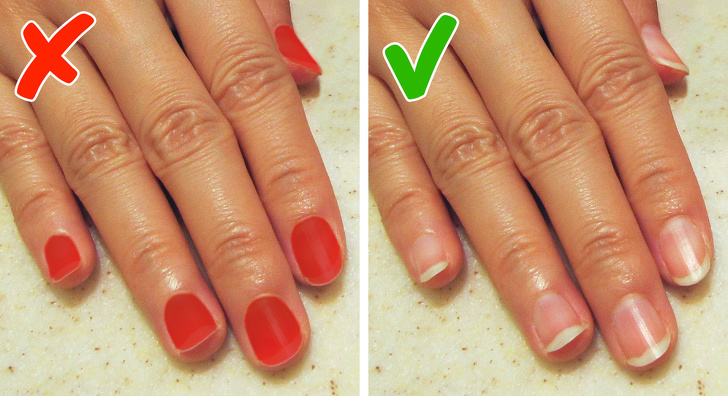
Dermatologists treat more than 3,000 diseases. During a full examination, the doctor should examine not only your skin but also your nails. After all, many fungal infections are usually located there. It’s very important for a doctor to see the natural state of your nails.
Moreover, any changes in the nails may indicate diseases of other organs, so try to give them enough attention.
2. Don’t drink alcohol before a cholesterol test.
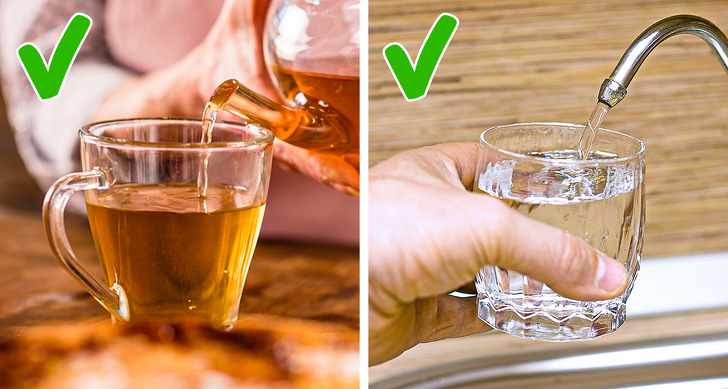
© depositphotos.com
Despite the fact that beer and spirits are cholesterol-free, they contain a lot of sugar as well as substances called carbohydrates which can cause a sharp jump of cholesterol in the body.
Soon, your cholesterol level will return to normal, but the doctor may receive incorrect results.
3. Don’t get too thirsty before a urine test.
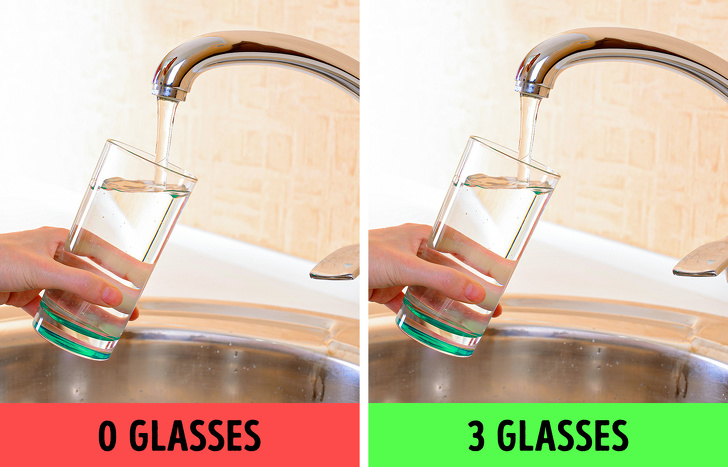
Human urine is 99% water and only 1% acid, ammonia, hormones, dead blood cells, protein, and other substances that are used for research. As you can see, the concentration is very low. So if you provide 100 ml of urine, approximately 1 ml of it is suitable for analysis. Drink more water a few hours before the test to make sure you produce enough urine.
4. Don’t use deodorant before a mammogram.
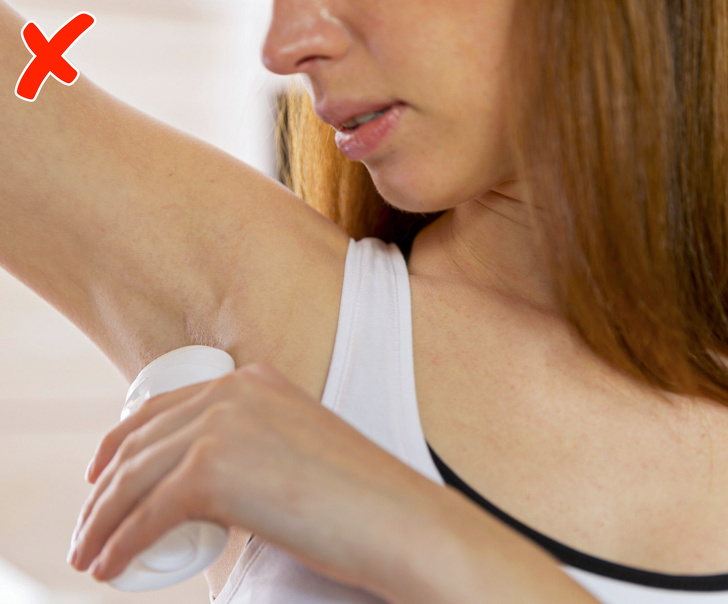
The ban on the use of deodorant before a mammogram is related to its composition since it contains small metallic substances. During the procedure, it’s easy to mistake these metals for calcifications, which is a sign of cancer developing. The results will not only be wrong, but they’ll make you pretty nervous.
5. Don’t eat red food before getting a colonoscopy.

© depositphotos.com
Natural red food can color your colon and affect the outcome of the study. Among the products you should discard at least one week before your colonoscopy are beets, cranberries, red candy, red frosting, red licorice, tomatoes, and tomato sauce.
You should also remember that this doesn’t mean that products of a different color can be consumed before going to the doctor. The day before the medical procedure, you should eat only clear, liquid foods.
6. Don’t eat a salty meal before having a blood pressure test.

© depositphotos.com
The American Heart Association recommends consuming no more than 2,300 milligrams of salt per day. Among other harmful effects, it contributes to a rise in blood pressure.
Therefore, before the test, you shouldn’t eat fast food, nuts, beans, or other products that contain a lot of salt. Otherwise, the results can be falsely high.
7. Don’t take medicine before having a blood test.
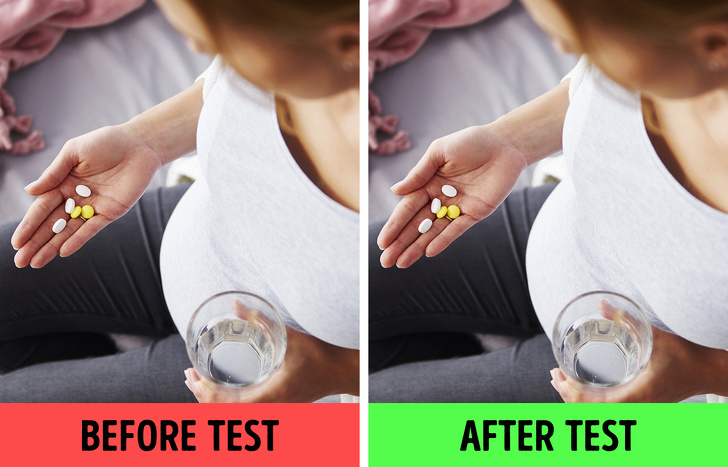
A few days before the test, for a more accurate result, you should refuse to take drugs so that your blood has time to cleanse and isn’t influenced by any outside factors.
As for pills prescribed to you for mandatory daily use, doctors usually say not to take them in the morning before giving blood and to then take them right after the test. But in each particular case, it’s better to discuss this issue in advance with the specialist.
8. Don’t change your everyday schedule.
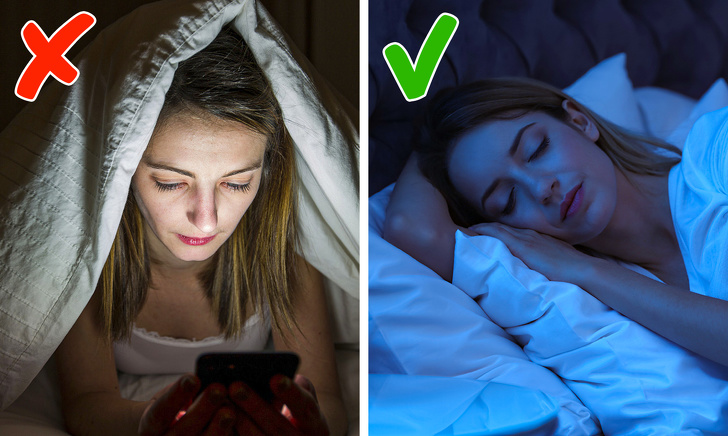
© shutterstock.com
Our body is a stable system that requires a certain amount of time to adapt to new regimens. For example, travelers use the universal rule that flying just one time zone over will require about 2 days of recovery. It turns out that when you go to bed an hour later than usual, your body is already experiencing stress, which affects its general condition and different body indices.
The same applies to other natural processes such as nutrition, water consumption, and stress levels.
9. Don’t use creams, lubricants, or tampons before a pap smear.
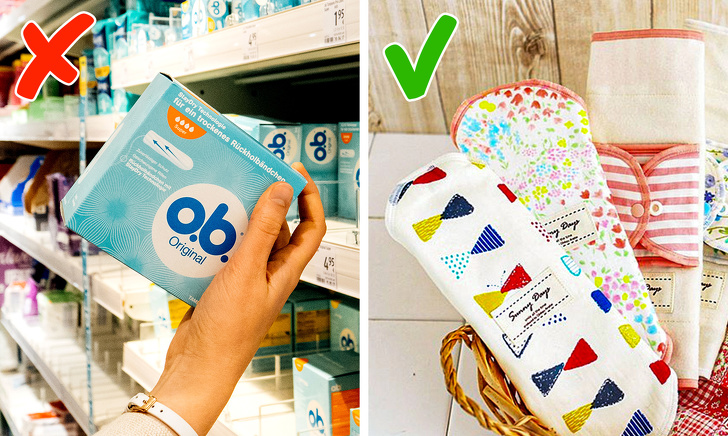
© wikimedia.org
A pap smear is one of the most important tests for determining the health of female organs. Doctors recommend doing it every 3 years. Given that the study zone is very sensitive and irritable to external factors, you should remember the following rules:
- Don’t insert tampons for 48 hours before a pap smear.
- Don’t apply creams and lubricants for 48 hours before your pap.
- Don’t use spermicides for 48 hours before a smear.
- Don’t make vaginal douches for 72 hours before your smear.
10. Don’t surf the Internet before visiting an ophthalmologist.
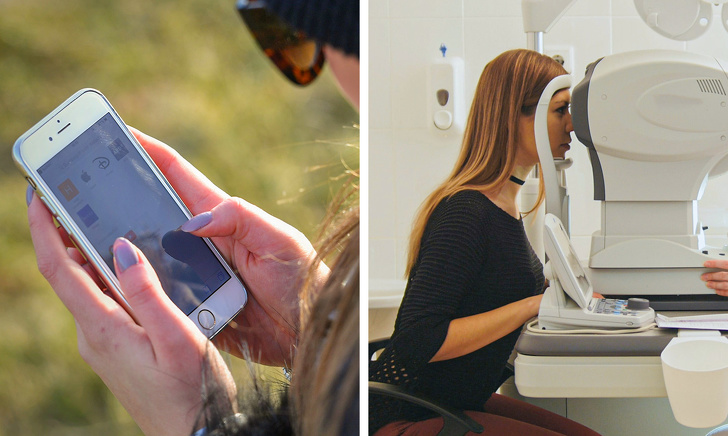
© Barcelona_dreams/easyfotostock/Eastnews
Constant eye-strain can indicate serious problems and requires special attention. But this state may also occur temporarily due to prolonged use of gadgets. For several hours, until your eyes rest, your sight may become worse than it really is.
If you go to the ophthalmologist for a medical certificate for work or driving school, you need to show your best result. Here’s a list of symptoms that can help to indicate eye-strain. If you have them, you should postpone the visit to the doctor for a while so you will get an accurate result.
- The feeling that you cannot keep your eyes open
- Burning or itching eyes
- Blurred or double vision
- Increased sensitivity to light
- Headaches
Have you ever had to postpone a trip to the doctor because of the wrong preparatory actions? Share your tips on what’s best not to do before going to the doctor.
Preview photo credit shutterstock.com





















